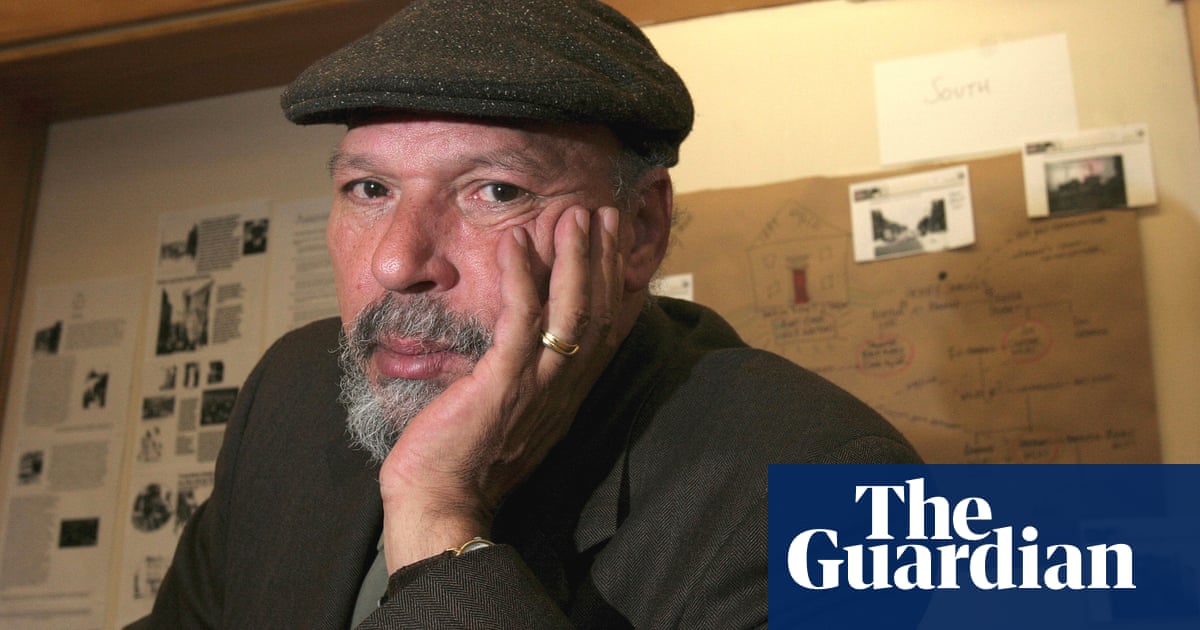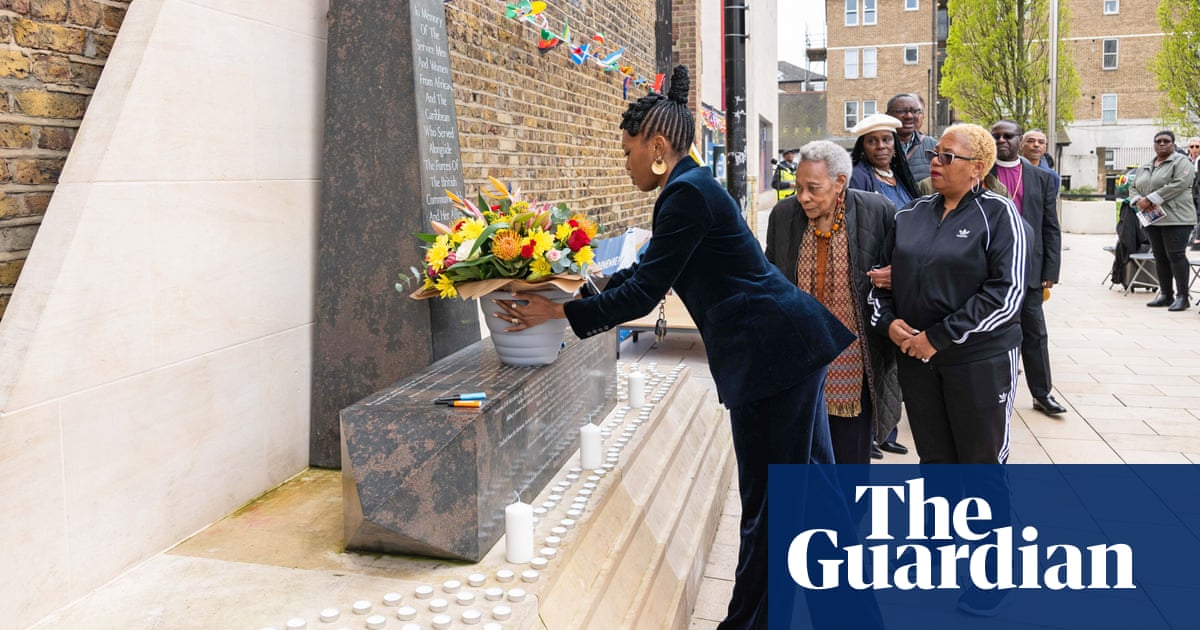
Hundreds of people gathered in a Wolverhampton carpark for the funeral of the Windrush campaigner Paulette Wilson, one of the most high-profile and outspoken victims of the government’s hostile environment who died unexpectedly in July, aged 64.
A horsedrawn carriage brought her body to the New Testament Church of God, where Wilson had volunteered for years as a chef cooking food for the local homeless community. The two grey horses pulling the coffin wore red, green, black and yellow headdresses, marking her Jamaican and Rastafarian roots.
Covid-19-related restrictions meant that only 20 family members were allowed inside the church but more than 200 friends gathered on the streets outside, and the Rev Dr Carver Anderson paid tribute to her in the church car park before the service, telling mourners: “We call her the Windrush champion, and she will never be forgotten.” The gathered crowds were asked to clap as her coffin was carried into the church, while seven musicians sang Rivers of Babylon.
There was sadness and anger among mourners about the difficulties Wilson had faced in the last few years of her life, following a decision by the Home Office to classify her as an illegal immigrant in 2016, 48 years after she had arrived legally in the UK from Jamaica as a 10-year-old. Friends described her resilience anddetermination to speak out about her experiences in order to help others also affected by the Home Office’s misclassification of thousands of legal UK residents as immigration offenders.
Trevor Beckford, a local musician who had known Paulette for years through their shared love of Jamaican music, said: “She was a very forthcoming, warm person, who would never see you without stopping to say hello. But the Windrush fiasco made black people feel that we are not welcome in our own country. It broke her spirit.”
Another friend, Heather Holness, who had known her for more than 30 years, said: “The spark went out of Paulette after she was detained.” Wilson was arrested twice by immigration officials in 2017, and spent time in Yarl’s Wood immigration removal centre, before being transferred to another centre in Heathrow , before a planned removal to Jamaica, a country she had not visited in half a century. She avoided deportation but faced a protracted battle to secure British citizenship.
Sandra Samuels, a Wolverhampton city councillor who had known her for many years, said: “Her death was sudden and unexpected, and devastating for the community. We have lost someone very dear to us. Paulette was someone who brought to light the hostile environment and paved the way for a lot of others who had problems to come forward. The hostile environment destroyed her as an individual but she carried on regardless.”
The Birmingham-based lawyer Jim Wilson, who had represented Wilson pro bono throughout her struggle to untangle her immigration difficulties, said: “I can’t help thinking that her early death was down to the ill-treatment that she received at the hands of the Home Office and the pressures that she was under. But she should not be seen as a victim. Paulette and others were warriors, who fought against the injustice that they faced. They didn’t give up.”
Wilson received some compensation for the time she spent in detention but had not yet applied for full compensation under the Windrush scheme. Her lawyer had been working with her on filling in her application, but said she had been finding it stressful, and had not managed to complete the forms before her death. “She was very unhappy to have to be jumping through all these hoops.”
Daniel Ashwell, from the Refugee and Migrant Centre, who also helped Wilson over several years, said the organisation was assisting between 15 and 20 people with Windrush compensation applications, none of whom had received payments. “So many people have said to me in the past few weeks: are they waiting for us to die like Paulette?”
Almost £18,000 was raised towards the costs of the funeral from more than a thousand members of the public responding to an online fundraising appeal. The strength of feeling about Wilson and her death is reflected in the comments section beneath the donations. Many said they were giving money as a way of expressing their anger with Home Office policy.
“So sorry for the humiliation and total disrespect,” one donor wrote. Another man who gave £10 towards the funeral wrote: “I’m ashamed at how my country treated Paulette and many others like her. My small donation won’t make much of a difference and won’t correct the wrong. But I hope it’s viewed as a sign that there are some in this country who absolutely reject the policies that subjected her – and others – to appalling treatment. She had every right to be here and every right to consider herself British. The fact that others deemed that not to be the case makes me ashamed to be British.”
A woman who donated £20 added: “Not in my name, shame on you Home Office. RIP Paulette.”
Money left over from the appeal will go towards creating a permanent memorial to Wilson in Wolverhampton acknowledging her contribution to fighting for justice for the Windrush generation, the Windrush campaigner Patrick Vernon said.
Wilson’s description in the Guardian in 2017 of her wrongful arrest and detention encouraged dozens of people to come forward and describe how they had found themselves wrongly classified as immigration offenders under the “hostile environment” immigration policy brought in under Theresa May.
Her decision to speak out helped bring the issue to light and forced the government to apologise. Several of those who attended the funeral had also been affected by Windrush-related issues. Tracey Wright’s mother was told she was not allowed to return to the UK full-time after a trip to Jamaica, despite having spent more than 36 years in Britain and having raised three children here. She met Wilson at a Windrush event, and said she had felt encouraged by her support.
Jackie McRae, who has known Wilson for 40 years and arrived from Jamaica in 1968, said she had been supported by her as she tried to secure citizenship after the Home Office classified her as an unauthorised migrant. “She suffered a lot but she held her head up high.”
Wilson’s daughter, Natalie Barnes, described her mother as “an inspiration to many people” and said she would continue to campaign for justice on her mother’s behalf.












